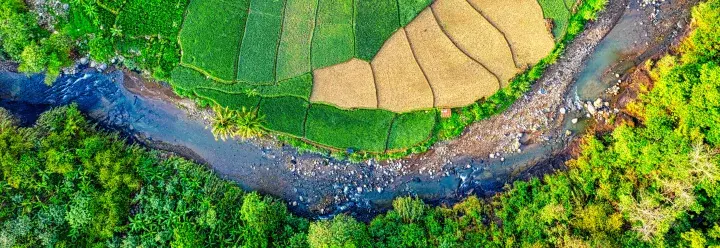As companies explore scalable solutions to meet sustainability commitments, sustainability systems are looking at how they can support sustainability improvement beyond certified production units.
Supporting sustainability at scale
The concept of landscape or jurisdictional approaches has attracted significant interest in recent years. Rather than looking at the sustainability of a single production unit, supply chain or sector, such approaches recognise that issues like deforestation, habitat conversion, land rights and rural development are often best addressed at a larger scale – across whole regions, landscapes or jurisdictions.
Landscape approaches work to tackle complex sustainability problems by creating and shaping local enabling conditions such as governance structures. Bringing together all stakeholders – producers, sourcing companies, governments, civil society, NGOs and investors – to work towards common goals has the potential to drive large-scale, lasting improvements.
To support landscape-level transformation, sustainability standards and similar systems are exploring how to increase their applicability at a larger scale. Sustainability systems are well placed to contribute to a landscape’s or region's sustainability, as they often address a range of issues that have implications for the wider landscape. These include high conservation value assessments, GHG emissions measurements, and the management of water resources.
How sustainability systems can engage as scalable solutions:
- Focus on a scale beyond individual production units;
- Seek to improve sustainability performance over time;
- Measure improvement through data and metrics;
- Be designed to promote durable change.



